by Rick MazumdarIn this article we'll take a look at one of my favorite directors of all time, the auteur Wes Anderson. We'll be looking at the songs used in the soundtrack of three of his films namely, The Royal Tenenbaums ; Rushmore and The Darjeeling Limited. This would part one of a three part article, for your reading convenience, where we'll look at his remaining films in a different light. I feel that these three movies cemented our idea of Anderson's use of songs in his films. The use of symmetrical camera usage, the characteristic color palettes of yellow, pink and orange and unusual aspect ratios during close ups,and hand made art coupled with the use of songs as a story telling device, is what makes his films so very heartfelt and emotionally resonant. In this article we'll take up three scenes in three of the films, and we'll discuss it with relation to the songs used. Lets look at the first film: Released in 1998, Rushmore was Anderson's second film after Bottle Rocket. Rushmore stars the acting talents of Bill Murray, Jason Schwartzman and Olivia Williams. Based a little on Anderson's own life, Rushmore is the story of Max Fischer, an eccentric student of Rushmore Academy a fictional school in Houston, Texas. Max Fischer ( played by Jason Schwartzman) loves the school he's in, a member of various clubs and the founder of even more ,an academically very poor student Max falls head over heals in love for an elementary school teacher , Rosemary Cross ( played by Olivia Williams ) and with all great romantic stories a love triangle is formed with Herman Blume ( played by Bill Murray ) , who initially befriends Max but then turns into his rival. This first scene we'll be looking at is this one: This scene takes place at Herman Blume's house, it's his twin sons birthday, a dejected looking Blume sees his wife flirting with another man across the pool, the characteristic widescreen composition of Wes Anderson, used to indicate a sense of humor while addressing the depressive nature of the scene. With The Kinks's " Nothing in this World Can stop me Worryin' Bout That Girl" playing in the background. A Throwback to the "Sound Of Silence" scene in The Graduate, and a visual reference to it as well, as the sequence feels like it was similar to that of The Graduate but told in the point of view of the Mrs. Robinson's husband. An important sequence in the context of the film also the kind I like to see, depressive, melancholic scenes in general have an appeal to me. The second sequence we'll be looking at is: The song used in this sequence is Cat Stevens' " Here comes my baby". We find Max finding his way in a new school ,Grover Cleveland after being expelled from Rushmore Academy. The mood here is a positive one, he tries to build his friendship with Rosemary Cross after striking out with her, while enhancing his ties with Herman Blume, who now has an interest in Ms.Cross. This song is both appropriate for both the mood and the setting and it calls for new beginnings of sorts. And finally we'll look at: This scene is towards the end of film where both Blume and Max both struck out at making anything work with Ms Cross, and their rivalry has ended and they now work together to build an aquarium in Rushmore. The song used here is " Oh Yoko" by John Lennon, a testament to the longing felt at missing one's lover, in the context of the scene this song fits perfectly, since it talks about how both Blume and Max have failed at their attempts but they still want to be with Ms Cross, and how through their mutual suffering they try and build a friendship. The soundtrack features a number of songs by Cat Stevens, a song by The Rolling Stones, Mark Mothersbaugh whose music is a common feature of Anderson's film is also featured in this film. The second film we'll look at is The Royal Tenenbaums which is my absolute favorite of Wes Anderson. The Royal Tenenbaums was released in 2001, directed and co- written by Owen Wilson, the film stars Gene Hackman, Anjelica Huston, Gweneth Paltrow, Ben Stiller ,Luke Wilson ,Owen Wilson and Danny Glover. A Quintessential Wes Anderson film, having all of the characteristic features that his films embody but this out of all of the films is the emotionally driven of them all. The nature of his films generally have emotional turmoil when it comes to strained relations within a family. A family drama about one such family of child proteges who slowly lost their talents and grew wayward and distant. Royal Tenenbaum (played by Gene Hackman) the head of the family who had separated but not divorced from his wife Etheline ( played by Anjelica Huston), had to raise their three children on her own. Margot Tenebaum (played by Gweneth Paltrow) a young playright who had grown wayward , Richie Tenenbaum a budding Tennis star who had lost interest in the sport when he found out that his step sister was getting married, because he was secretly in love with her, and finally Chaz Tenenbaum a businessman who became over protective of his two sons Ari and Uzi once his wife died in a plane crash and was unable to recover from her death. My favorite scene in this film is when we see Margot Tenenbaum (played by Gweneth Paltrow) coming to receive her step brother Richie (played by Luke Wilson) from the ship port, with the green line bus in the background and with Nico's "These Days" playing, brings forth a sense of longing, a sense of being re united. The primary color palette used in this film was yellow,we see this throughout the course of the film, every film he's made has a predominant color palette and a very clear transition of colors. The song, which deals with themes of loss and regret. A common theme of this film. The second scene I really enjoy about the film is when Royal ( played by Gene Hackman) takes his grandsons Ari and Uzi out on the town, the sequence is absolutely fun to watch, an excess of recklessness and a carefree attitude is what we get out of watching Royal " taking it out and chopping it up" with his boys. Wes Anderson uses the perfect song for this sequence, Paul Simon's "Me and Julio Down by the school yard". The third scene I'd really like to talk about would be when Richie and Rayleigh ( played by Bill Murray) learn that Margot had been seeing people behind their backs, both of them react in a negative way but Richie's reaction is far more severe. A common feature of his films is the nonchalance with which the characters deliver their dialogues which sometimes result in comedic situation, but other times the gravity of the dialogue has its effect long after it has been delivered. Right here he looks into the mirror and without any unnecessary effect whispers "I'm going to kill myself" and you don't realize it at first, but only when he's being rushed to the hospital do you understand what has happened. Elliot Smith's "Needle in the hay" plays in the background as we watch Richie cut himself with the razor. Finally we talk about , Darjeeling limited which was released in 2007, inspired from the Indian director Satyajit Ray, Darjeeling Limited pays tribute to Ray in it's style and in the use of various music pieces that Ray had used in his films. The film stars Owen Wilson, Adrien Brody, and Jason Schwartzman. It was written by Anderson, Schwartzman, and Roman Coppola. On a train in India, called "The Darjeeling Limited", Peter Whitman (played by Adrien Brody) reunites with brothers Francis (played by Owen Wilson) and Jack (played by Jason Schwartzman). The three have not seen each other since their father's funeral a year prior, and having recently survived a near-fatal motorcycle accident, Francis wishes to reconnect with his brothers on a journey of spiritual self-discovery. The first scene that I'll talk about is: Undoubtedly one of my favorite sequences ever, the Whitman brothers running after the train as it pulls out of the station, dropping half their luggage as they do so, and it all happens in slow motion, with The Kinks' " This time tomorrow" playing in the background, imbibes a sense of leaving one place and going on a journey to unknown lands. My second most favorite sequence features another Kinks song, "Strangers". The brothers who were unable to save the life of a drowning child now had to carry the body of the third back to the boys' village, where they spend the night and are warmly treated. They attend the funeral the next day, and a flashback sequence shows events that took place when the three brothers were en route to their father's funeral. Strangers to me talks being unable to settle down with ease, feeling alienated even in the presence of loved ones. And finally I'd like to talk about this song played during the end credits by Joe Dassin, called Les Champs Elysees, although it doesn't have much context with the story, it fits into the theme of journey. The use of music in a film is one that is quite important, oftentimes directors use classical pieces to bring in a certain mood, however the use of contemporary songs has a completely different altogether if it is used in the right context. On May 2014 a compilation album was released and named "I Saved Latin!" featuring many of the songs used in Wes Anderson's films. Hope you liked reading this article!
Second and Third parts coming soon! Keep following our blog!
Follow us on Facebook and Instagram to be notified whenever we release new articles.
Do you use an RSS reader? Even better!
0 Comments
Leave a Reply. |
Categories
All
Archives
December 2022
|
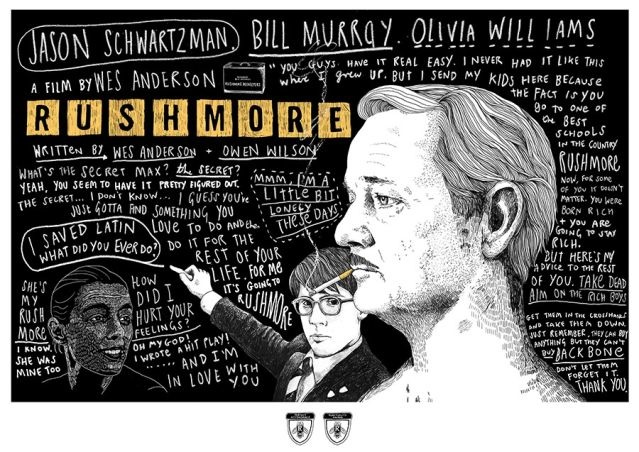
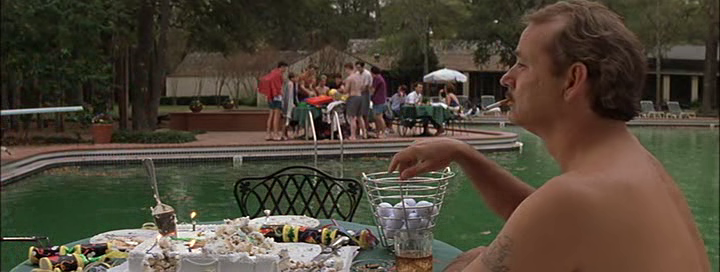
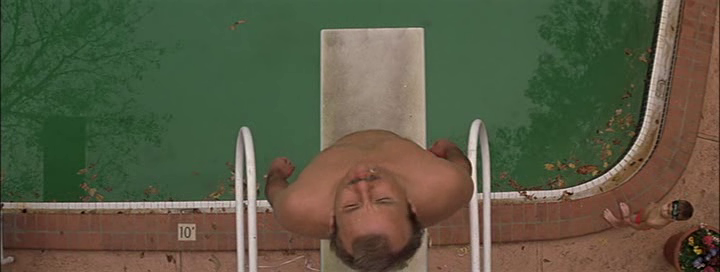
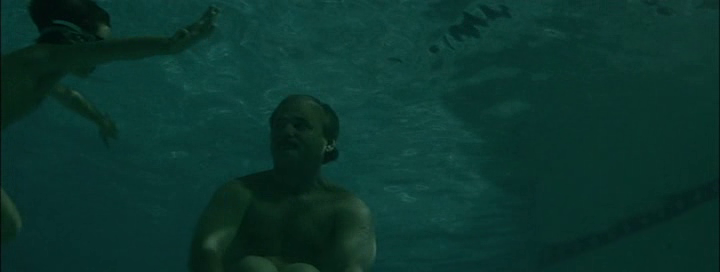
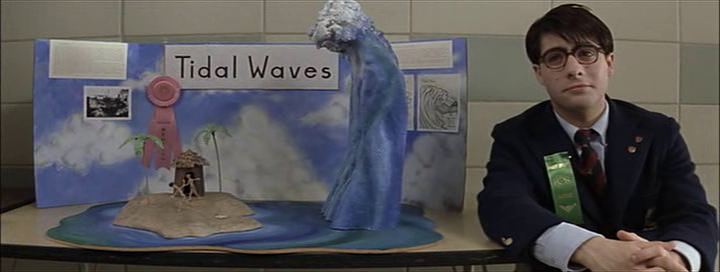
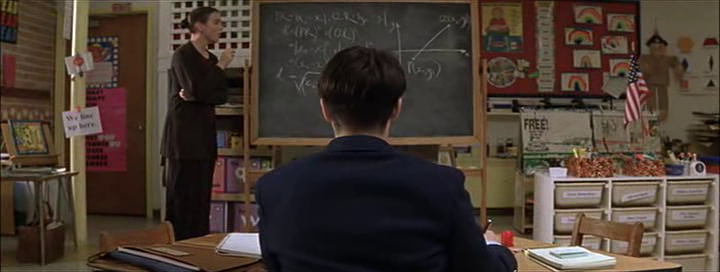
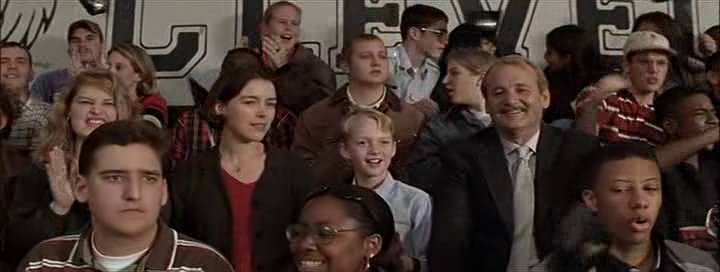
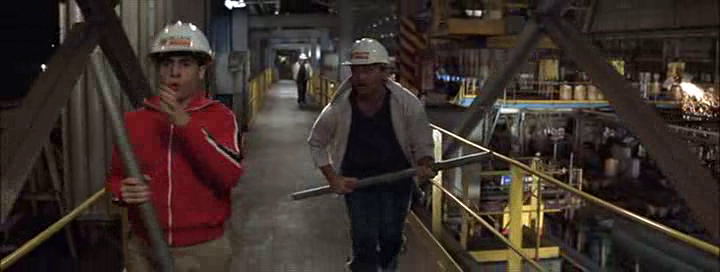
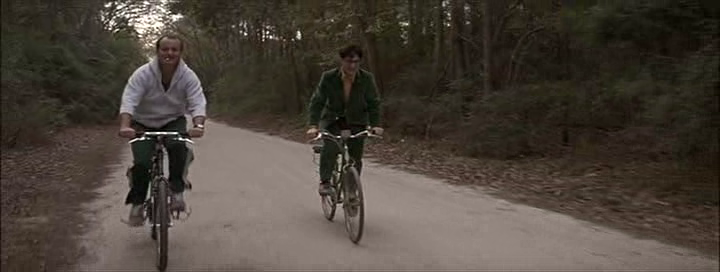
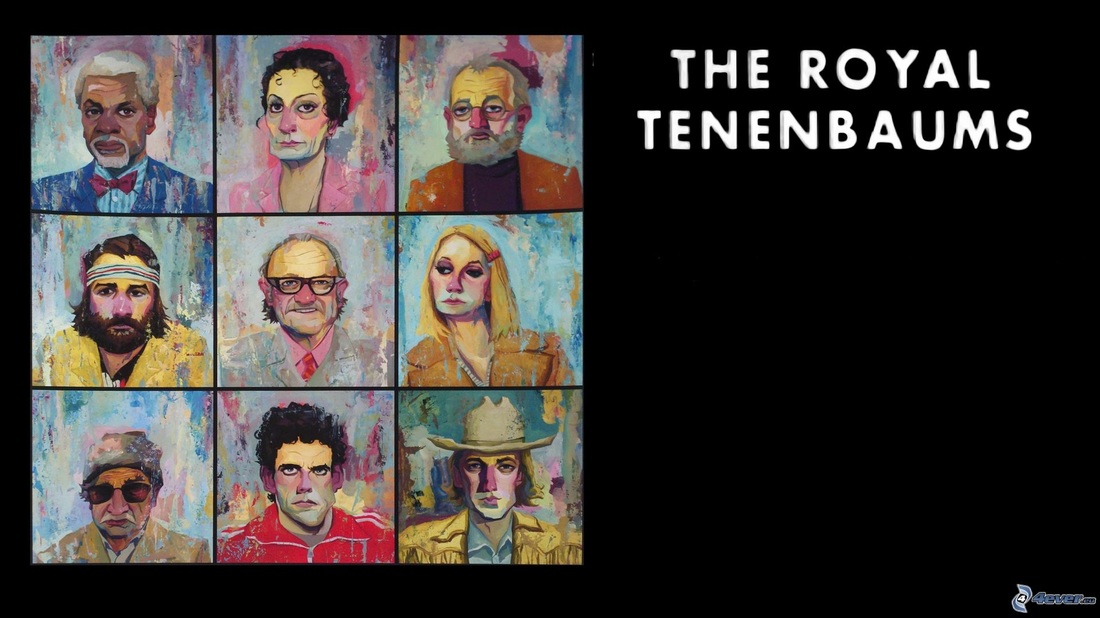
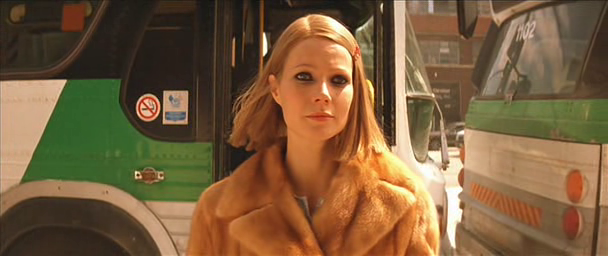
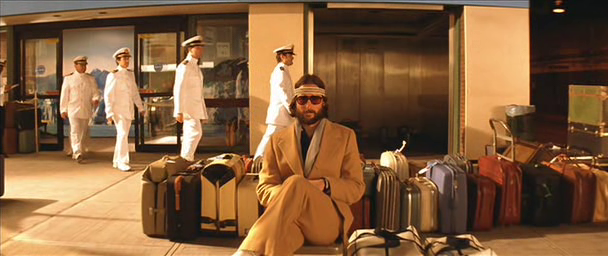
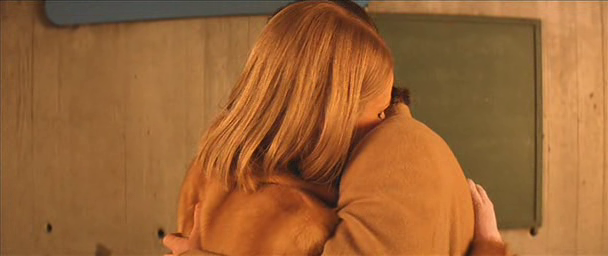
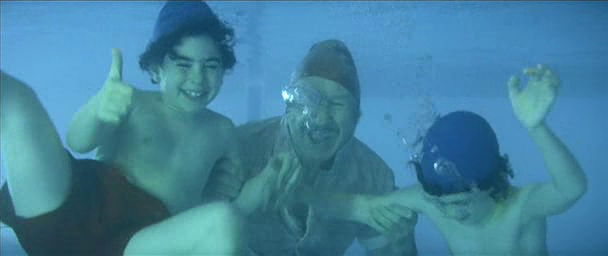
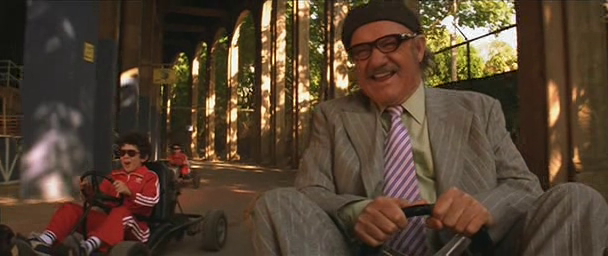
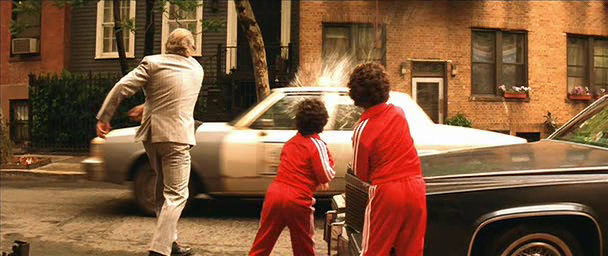
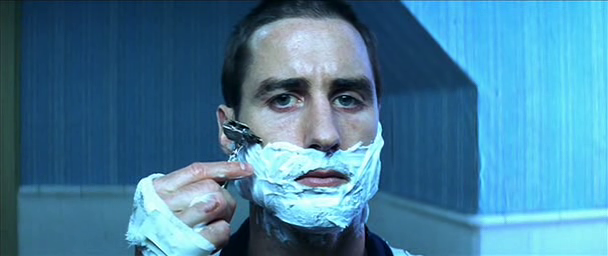
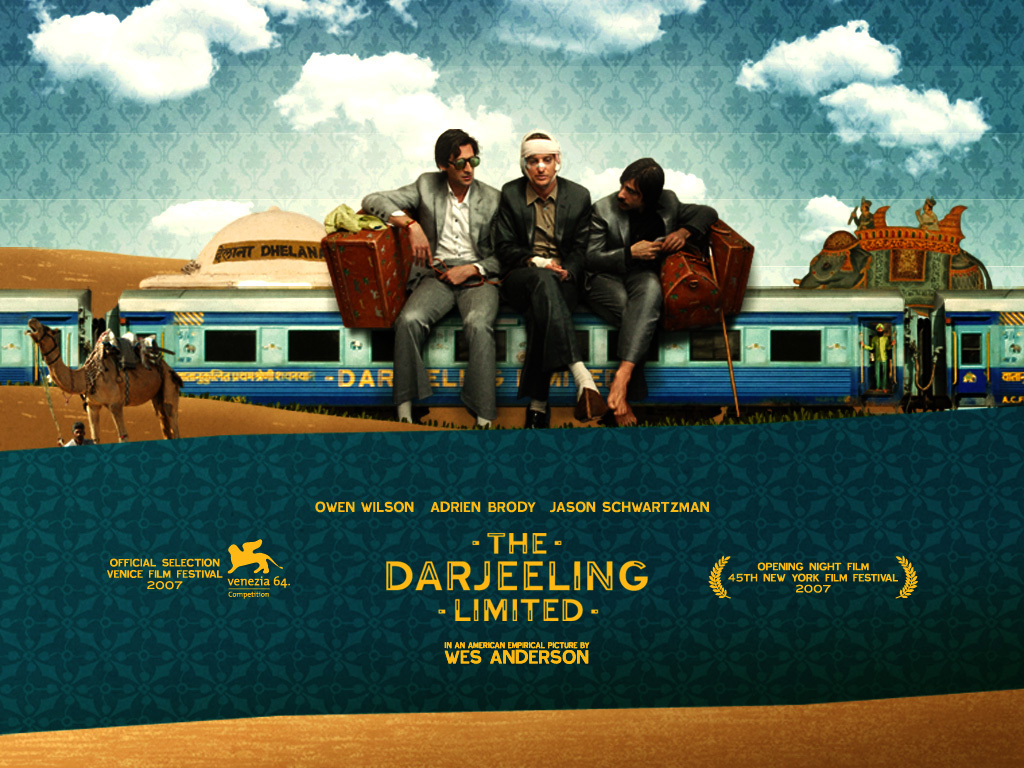
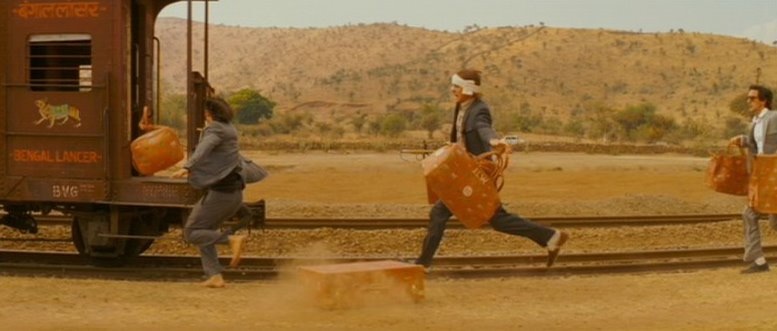
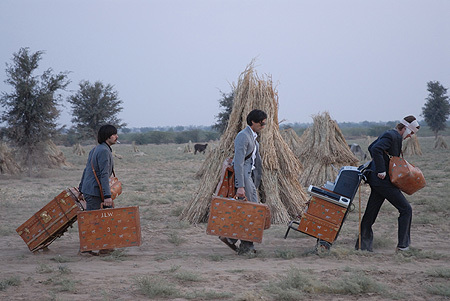
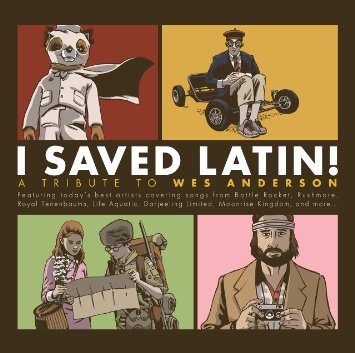
 RSS Feed
RSS Feed
